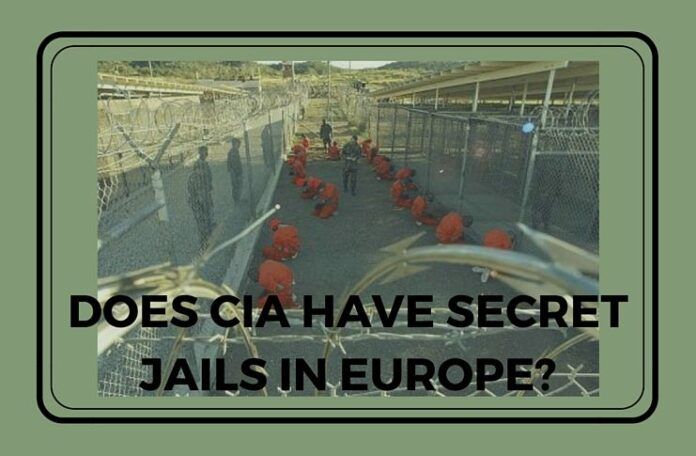
The European Court of Human Rights (ECHR) held a hearing Wednesday on a case concerning illegal imprisonment and abuse of a Saudi Arabian at a secret U.S.-run jail, once again drawing global attention to the issue of prisoner abuse by the U.S.
As the key countries involved have tried to cover up the scandal, more pieces of truth about the case needs to be brought to daylight.
[dropcap color=”#008040″ boxed=”yes” boxed_radius=”8px” class=”” id=””]A[/dropcap]bd al-Rahim Hussein Muhammad Al Nashiri, of Yemeni descent, was jailed between April 2004 and September 2006 in the secret detention center operated by the Central Intelligence Agency (CIA) in Romania. He was reportedly held there “with the knowledge of Romanian authorities” before transferred to the U.S. Guantanamo Bay Naval Base in Cuba.
Washington accused Al Nashiri of heading a terrorist attack in October 2000 against U.S. destroyer USS Cole, which caused 17 deaths in the Yemeni harbor of Aden.
Al Nashiri lodged a suit against Romania at the Here is ECHR in 2012, alleging that Romania violated the European Convention on Human Rights. He also claimed to have been maltreated and tortured during the CIA imprisonment.
While admitting the existence of the CIA jail, the Romanian government representative insisted on an absence of evidence for Romania’s involvement during the Wednesday audience in Strasbourg, France.
[dropcap color=”#008040″ boxed=”yes” boxed_radius=”8px” class=”” id=””]S[/dropcap]o often, trials of similar cases have turned out to be sluggish in contradiction to the openness and transparency ever advocated by the Western world. For instance, it had taken nine years before the ECHR issued a ruling in July 2014 to verify a similar CIA jail in Poland where many terror suspects suffered sensational tortures and brutalities.
Although Romania has become a defendant in the case as the ECHR has no jurisdiction beyond Europe, the international community is paying more attention to whatever the CIA did in the malpractice. Meanwhile, a U.S. reticence on the case is arousing much wonder.
Washington’s reluctance to cooperate has delayed the ECHR proceedings. This displays an inconsistency with its zeal for human rights policing worldwide, and is thus expected to harm its credibility.
Doubtlessly, CIA jail scandals will add a grave stain to the human rights records of both Americans and Europeans. According to the ECHR, investigations have found evidence incriminating Italy and Lithuania, after the previous conviction of Poland and Macedonia.
[dropcap color=”#008040″ boxed=”yes” boxed_radius=”8px” class=”” id=””]T[/dropcap]he rule of law and human rights, always seen as part of the foundation for Western society, have been violated recklessly and even tread upon in the scandal.
The scandal also hurts Europe. Since the media exposure of CIA underground cells in 2005, European institutions such as the European Commission have appealed for investigations in member countries.
The European Parliament passed a bill last June demanding concrete steps to further probe into any European involvement and subsequently corresponding punishment. It meanwhile voiced regret over Washington’s failure to shut down the Guantanamo jail and urged an end to its illegal imprisonments and abuses of inmates.
Following the Wednesday hearing, seven ECHR judges are expected to work out a date for a verdict. Media reports worldwide have been filled with angry outcries about disclosures in the scandal as well as increased calls, and have all called for truthful investigation and settlement of the case. Under such a circumstance, it seems that any elusiveness and reticence thereon can hardly work.
Notes: Xinhua- (This story has not been edited by PGurus.com and is generated from a syndicated feed we subscribe to)
- Pentagon cancels aid to Pakistan over record on militants - September 2, 2018
- The curious case of Tamil Nadu’s opposition to NEET - September 4, 2017
- If 2.6 Billion People Go To War: India vs. China - July 22, 2017










